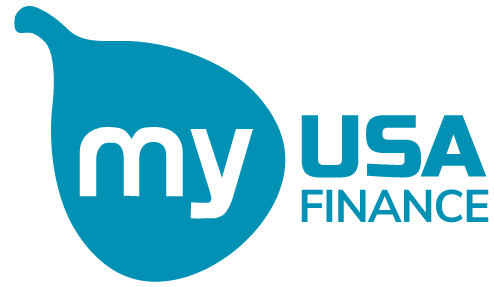Imagine diving into cool water on a scorching summer day or hosting a BBQ pool party. A pool offers endless entertainment, relaxation, and increases your property value. A pool can turn your backyard into a summertime sanctuary.
Adding an above-ground or in-ground pool can be expensive, so you may need to finance the project.
One option is to take out a pool loan. Pool loans do not require home equity, and qualified borrowers can get low-interest rates.
What are Pool Loans?
A pool loan is a type of personal loan specifically designed to finance the construction or renovation of swimming pools.
Much like you’d finance a car or a home renovation, a pool loan lets you borrow the money you need upfront and pay it back over time.

Looking for a Pool Loan?
Explore your options today!
Pros and Cons of Pool Loans
Pros
- Fixed Monthly Payments: Knowing your monthly payment can help with budgeting.
- Flexible Loan Rates & Terms: Depending on the lender, you may have the option to select the rates & terms of your pool loan.
- No Collateral Needed:Unsecured personal loans don’t require putting up your home or other assets.
Cons
- Higher Interest Rates: Unsecured loans often have higher interest rates than secured ones.
- Flexible Loan Rates & Terms: Depending on the lender, you may have the option to select the rates & terms of your pool loan.
- Larger Monthly Payments: Short repayment terms may require large monthly payments
Need Cash Fast? Get Approved for a Personal Loan Today!
Personal Loans Up To $50K
How to Get A Pool Loan
The pool loan process may vary based on your circumstances and chosen lender. These steps are a general guide.
Step 1: Get a Pool Estimate: Work with a contractor to establish a cost estimate for your pool project. Knowing the required amount will help you choose a suitable pool lender.
Step 2: Pre-Qualify: Some online lenders, banks, and credit unions offer pre-qualification. This lets you explore potential loan offers, rates, and monthly payments without affecting your credit score.
Step 3: Compare Lenders: When you receive similar pool loan offers, compare interest rates and terms and other loan features. Consider factors like quick funding options or extended repayment terms for larger projects.
Step 4: Gather Documents and Apply: Collect necessary documents such as W-2s, bank statements, and ID. Having these ready speeds up the process.
Read More: How To Pay For Home Improvements
Other Types of Pool Loans
Home Equity Loans
A home equity loan allows you to borrow against the value of your home. It provides a lump sum of money, which you’ll repay over a set term, typically with a fixed interest rate.
Pros
- Lower Interest Rates: Typically lower than unsecured loans.
- Potential Tax Benefits: Interest paid might be tax-deductible.
Cons
- Dual Mortgage Payments: If you already have a primary mortgage, taking a home equity loan means managing two mortgage payments. This can tighten your monthly budget and reduce disposable income.
- Risk To Your Home: Failing to repay could lead to your home being foreclosed by the lender, putting your property at risk.
Read More: 7 Ways A Personal Loan Can Save You Money
Cash Out Refinance
With this type of loan, you replace your current mortgage with a larger one and receive the difference in cash.
Keep in mind that this will involve getting your home appraised and paying closing costs, and the loan will come with new terms.
Pros
- Access to Funds: A cash-out refinance provides access to a significant amount of money by leveraging the equity in your home, allowing you to finance the pool project.
Lower Interest Rates: If the current interest rates are lower than your existing mortgage rate, a cash-out refinance can offer a new loan with more favorable terms and a reduced interest rate.
Cons
- Increased Total Debt: Opting for a cash-out refinance increases the overall debt secured by your home, potentially extending the time it takes to pay off your mortgage and increasing the total interest paid.
- Risk To Your Home: Failing to repay could lead to your home being foreclosed by the lender, putting your property at risk.
Credit Cards
Some homeowners choose to finance their pool with a credit card, especially if they can use a promotional interest rate.
Pros
- Rewards and Bonuses: Some cards offer rewards or bonuses for large purchases.
Flexibility: Financing a pool with a credit card provides flexibility in terms of repayment. Homeowners can choose to pay off the balance according to their own financial timeline, as long as they meet the minimum payment requirements.
Cons
- Higher Long-Term Interest Rates: Once the promotional period ends, rates can be high.
- Potential Impact on Credit Score: Large credit card balances relative to the credit limit, known as high credit utilization, can negatively affect credit scores.
Looking for a Personal Loan?
Explore your options today!
Where to Get a Pool Loan
Pool loans are available through banks, credit unions, and online lenders, each with specific borrower requirements and loan terms.
- Banks: Existing bank customers may access benefits like reduced rates, higher loan amounts, or exclusive offers. Generally, banks favor those with solid credit and a significant income.
Credit Unions: Individuals with fair or poor credit (scores of 689 or lower) could have better chances with credit union loans. These nonprofit institutions often consider your membership history rather than your credit score.
- Online Lenders: Online lenders differ in eligibility and loan features. Some cater to low-credit or limited-credit borrowers, while others provide specialized options for well-qualified applicants.
The Cost Of A Swimming Pool
According to Homeguide, swimming pool installation costs range from $1,000 to $55,000. Pool installation costs are primarily determined by the size and depth of the pool, as well as the type of installation.
The size, depth, and type of installation are the main factors that determine the cost. In-ground pools typically cost around $35,000, while above-ground pools usually cost around $2,800 on average.
Frequently Asked Questions
A pool loan is a type of personal loan specifically designed to finance the construction or renovation of swimming pools. Similar to other loans, you borrow the necessary funds upfront and repay them over a specified period through fixed monthly payments.
The general steps for obtaining a pool loan include:
1. Getting a pool cost estimate
2. Pre-qualifying with lenders to explore potential offers
3. Comparing interest rates and loan features
4. Gathering necessary documents for the application process
5. Apply for a pool loan
You can get pool loans from banks, credit unions, and online lenders.
Banks often offer benefits for existing customers. Credit unions might be more flexible for individuals with lower credit scores. Online lenders vary in eligibility and features catering to different types of borrowers.
Besides pool loans, you can consider options like home equity loans, cash-out refinances, and credit cards for pool financing.
Each option has its own pros and cons, such as varying interest rates, potential tax benefits, and risks associated with your home.











